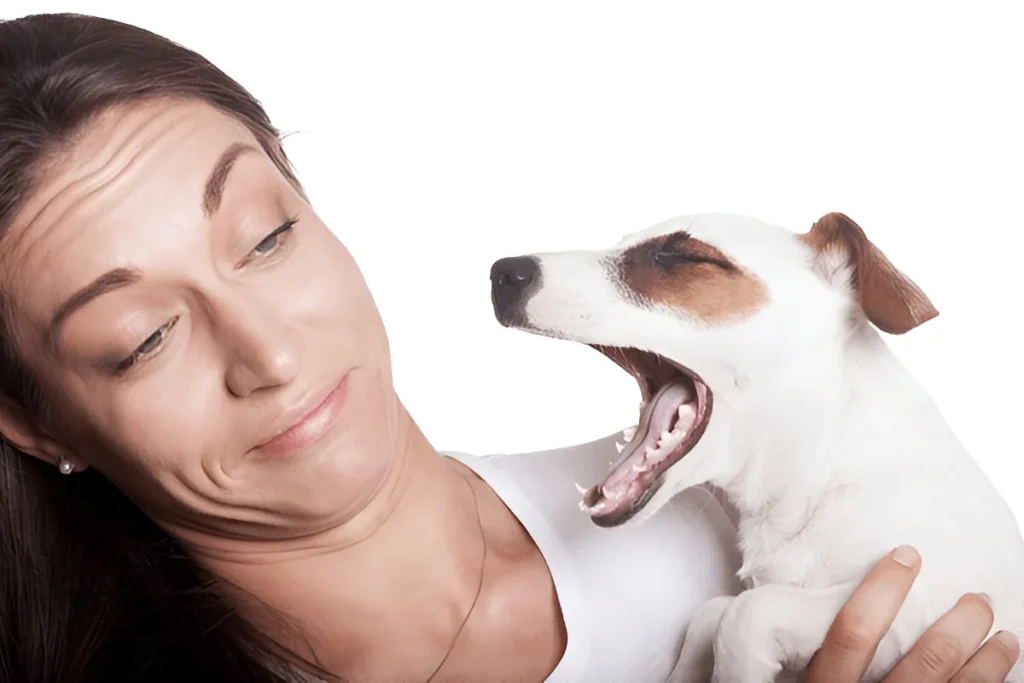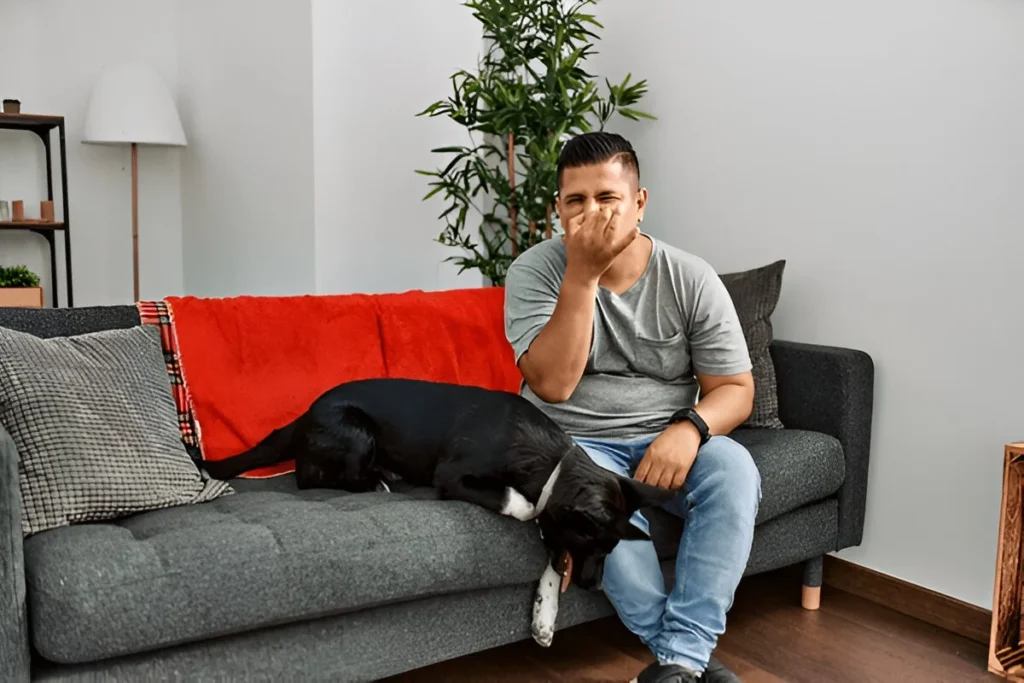-
Kutchina service center, Kolkata - 700010
Kutchina service center, Kolkata - 700010

Discover what causes bad breath in dogs and learn how the Best Pet Clinic in Kolkata explains simple remedies to keep your furry friend’s mouth fresh and healthy.
Every pet parent knows that irresistible urge to cuddle their furry companion. But when bad breath in dogs becomes noticeable, it can make those warm moments less pleasant. While many owners dismiss it as “doggy breath,” persistent odor is often a sign of an underlying issue. Knowing the causes and solutions not only helps maintain your dog’s comfort but also prevents bigger health concerns.

Just like in humans, your dog’s breath is a window to their overall health. Ignoring it may lead to complications in the mouth, stomach, or even major organs. Recognizing the reasons behind the odor helps in timely care.
Here are some frequent culprits behind your pet’s smelly breath:
Not all bad breath is equal. Watch for these red flags:
If you notice these, it’s best to seek professional guidance.
Pet parents often ask how to tackle this problem without harsh treatments. Some simple yet effective approaches include:
Nutrition is a game-changer for oral health. High-quality dog food with fewer fillers reduces bacterial buildup. Adding crunchy kibble or safe raw veggies can help scrape plaque naturally. Always avoid human foods that may harm your pet’s teeth and stomach.
To ensure your dog’s breath stays fresh:

Q1. Can bad breath in dogs go away on its own?
Not usually. It often requires proper dental care or medical attention.
Q2. Are certain dog breeds more prone to bad breath?
Yes, smaller breeds and flat-faced dogs tend to develop dental issues faster.
Q3. Can home remedies completely cure bad breath?
They can help manage it, but underlying health problems may need professional veterinary care.
Q4. How often should I brush my dog’s teeth?
Ideally, daily brushing is best, but even 3–4 times a week helps reduce odor.
Q5. Does bad breath in dogs mean my pet is sick?
Not always. While poor oral hygiene is the most common reason, persistent odor may signal deeper health issues.
Bad breath in dogs isn’t just about an unpleasant smell—it’s about their overall well-being. By paying attention to oral hygiene, diet, and routine check-ups, you ensure your furry friend stays healthy, happy, and full of life. Fresh breath means more cuddles, more smiles, and a stronger bond between you and your pet.